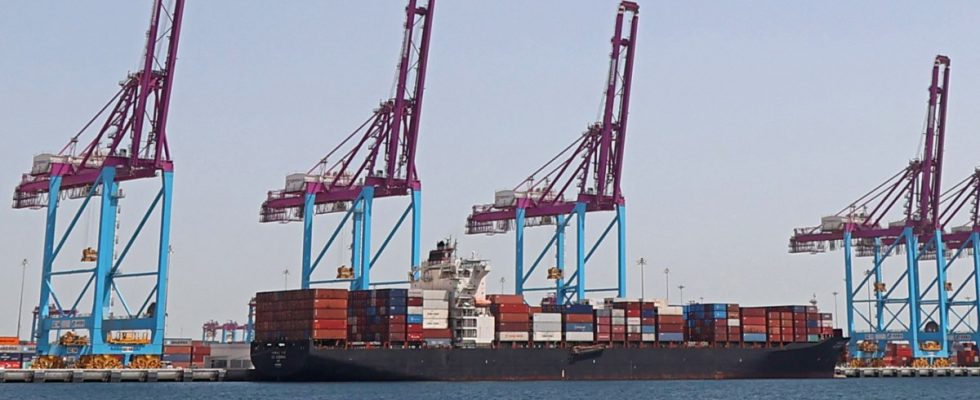Land in sight – but also a lot of dangerous cliffs that still have to be circumnavigated: This sums up the latest global economic outlook from the International Monetary Fund (IMF), which was presented in Washington on Tuesday. Accordingly, the slight economic recovery of the past few weeks and months will presumably continue. Calculated for the whole of 2023, however, global growth remains unusually weak at just 2.8 percent. According to the IMF, which monitors global economic development on behalf of the international community and grants financial aid to countries in need of money, the growth rate could only reach three percent again in 2024.
According to the IMF, the fact that the economic recovery is only proceeding very slowly is mainly due to the countries of Europe, which are struggling more than others with the consequences of the corona pandemic and the effects of the Russian war of aggression against Ukraine. In all probability, growth in the euro zone this year, at around 0.8 percent, will be just half as high as in the USA and Canada.
Things look even worse in Germany and Great Britain: Both countries are the only ones among the leading industrialized and emerging countries for which the IMF is predicting a decline in gross domestic product (GDP) of minus 0.1 and minus 0.3 percent respectively for 2023. This makes the IMF a bit more pessimistic than the German government’s council of experts, which recently revised its growth forecast for this year upwards from minus 0.1 to plus 0.2 percent.
In 2024, too, the local GDP increase in Germany is likely to be quite low at an estimated around 1.1 percent. According to the IMF forecast, many emerging countries such as China, India, Mexico, Saudi Arabia and even Russia can expect higher rates than Germany. In the case of China, for example, the experts expect growth of 5.2 and 4.5 percent this year and next. That would be rather little in a long-term comparison, but it shows that the People’s Republic is slowly getting its massive corona-related problems under control.
The banking sector in particular is worrying the IMF
The upswing in China is also one of the pluses that the IMF has seen on the credit side with a view to the global economy as a whole. Another is the easing of pressure on global supply chains, energy and food markets, which have been struggling with massive dislocations from the war in Ukraine and Western sanctions against Russia. According to the report, there are also signs of a slight relaxation in the general price trend following the drastic increases in key interest rates by many central banks. For Germany, for example, the Washington economists predict an inflation rate of 6.2 percent this year and 3.1 percent next year. The unemployment rate is also likely to remain at a very low level of 3.3 percent.
However, the risks are far greater than the growth opportunities. Despite all slight downward tendencies, inflation is proving to be extremely stubborn, which increases the likelihood that the central banks will have to raise their interest rates even more than planned anyway. This in turn could bring renewed difficulties for the financial sector, which is sitting on a mountain of low-interest and therefore practically unsaleable government bonds. In and of itself, that’s not really a problem. However, it can develop into one if investors demand their money back and a credit institution is therefore forced to sell bonds.
The case of the traditional company Credit Suisse shows how nervous the financial markets are after the bankruptcy of the US Silicon Valley Bank: Because international investors no longer trusted the bank, it got into trouble and, under pressure from the Swiss government, was taken over by its competitor UBS . The IMF warns that the same could happen to other financial institutions that have taken on too much debt or have relied too heavily on short-term financing instruments. “They could become the next target – just like countries with perceived weak economic fundamentals,” wrote IMF chief economist Pierre-Olivier Gourinchas in an essay published alongside the new World Economic Outlook.
The IMF also considers a scenario in which the key interest rate hikes by the central banks lead to a flight of capital from many emerging countries, a drastic rise in the dollar exchange rate and a global economic downturn to be unlikely, but by no means completely ruled out. Either way, says Gourinchas: “The fog surrounding the global economic outlook has become significantly denser.”

